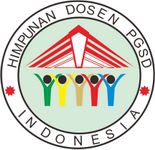Studi Tingkat Motivasi Belajar Siswa Berdasarkan Hubungan Ibu dan Anak Kelas 5 di SD N 02 Dagen
DOI:
https://doi.org/10.31949/jee.v6i4.7035Abstract
Student learning motivation plays an important role as a driving force in achieving learning goals. In the learning process, it is important to achieve a balance between the level of student learning motivation and the learning objectives. Each student has a different level of motivation to learn, this is influenced by several factors, one of which is family environmental factors. The purpose of this research was to determine the level of student motivation to learn based on the relationship between mothers and children in grade 5 at SDN 02 Dagen. The relationship studied is the close relationship between mother and child. This research uses a mixed method approach which combines elements of qualitative and quantitative methods. The research subjects were students in class 5 at SDN 02 Dagen and had been selected based on the criteria the researchers needed. The results of the research show that there is an influence of the closeness of mother and child on the level of children's learning motivation. Parents and teachers need to pay attention to and increase children's learning motivation at school, and the role of parents at home must also be carried out well
Keywords:
Closeness, Motivation, Mother and child, LearningDownloads
References
Agustina, R. D. (2015). Pengaruh Teman Sebaya, Lingkungan Keluarga dan Motivasi Belajar terhadap Disiplin Belajar Akuntansi Siswa Kelas XI Akuntanwi SMK Gatra Praja Pekalongan Tahun Ajaran 2014/2015. Universitas Negeri Semarang.
Amseke, F. V. (2018). Pengaruh Dukungan Sosial Orang Tua Terhadap Motivasi Berprestasi. Ciencias: Jurnal Penelitian Dan Pengembangan Pendidikan, 1(1), 65-81.
Arifin, S. (2017). Revitalisasi Keluarga Sebagai Lingkungan Pendidikan. Kariman: Jurnal Pendidikan Keislaman, 5(1), 1-22.
Diaz, D., Darmiany, D., & Itsna, I. (2021). Regulasi Diri dalam Belajar Siswa Berprestasi kelas 5 di SDN 9 Mataram Tahun Ajaran 2020/2021. Journal of Science Instruction and Technology, 1(2).
Firdianti, A. (2018). Implementasi Manajemen Berbasis Sekolah Dalam Meningkatkan Prestasi Belajar Siswa. Lampung: Gre Publishing.
Hamzah, B. U. (2008). Teori Motivasi dan Pengukurannya. Jakarta: PT. Bumi Aksara.
Hasbullah. (2009). Dasar-dasar Ilmu Pendidikan. Jakarta: Rajawali Pers.
Jahja, Y. (2011). Psikologi Perkembangan. Jakarta: Kencana Prenada Media.
Maldinni, R., & Amalia, N. (2019). Analisis Dukungan Orang Tua dalam Keberlanjutan Pendidikan Anak di Dukuh Bregan Kabupaten Sukoharjo. Universitas Muhammadiyah Surakarta.
Ntekane, A. (2018). Parental Involvement in Education. North-West University.
Pratiwi, N. K. S. P. (2018). Pentingnya Peran Orang Tua dalam Pendidikan Karakter Anak Usia Sekolah Dasar. Adi Widya: Jurnal Pendidikan Dasar, 3(1), 83-90.
Pristiwanti, D., Badariah, B., & Nulhakim, L. (2022). Kompetensi Guru Dalam Pengembangan Kurikulum SD. Jurnal Pendidikan Dan Konseling, 4(6), 10621–10625.
Pristiwanti, D., Badariah, B., Hidayat, S., & Dewi, R. S. (2022). Pengertian Pendidikan. Jurnal Pendidikan Dan Konseling (JPDK), 4(6), 7911-7915.
Rahmat, S. T. (2018). Pola asuh yang efektif untuk mendidik anak di era digital. Jurnal Pendidikan dan Kebudayaan Missio, 10(2), 143-161.
Reed, J., Hirsh-Pasek, K., & Golinkoff, R. M. (2017). Learning on Hold: Cell Phones Sidetrack Parent-Child Interactions. Developmental Psychology, 53(8), 1428–1436. Retrieved from https://doi.org/10.1037/dev0000292
Reis, O., & Buhl, H. M. (2008). Individuation during adolescence and emerging adulthood–five German studies. International Journal of Behavioral Development, 32(5), 369-371.
Rubiyanto, R. (2009). Metode Penelitian Pendidikan. Surakarta: PGSD FKIP UMS.
Rumbewas, S. S., Laka, B. M., & Meokbun, N. (2018). Peran Orang Tua Dalam Miningkatkan Motivasi Belajar Peserta Didik di Sd Negeri Saribi. EduMatSains: Jurnal Pendidikan, Matematika Dan Sains, 2(2), 201-212
Saefullah, U. (2012). Psikologi Perkembangan dan Pendidikan. Bandung: Pustaka Setia.
Sandy, L. L., Suryadi, & Nasrullah, A. (2017). Pengaruh Perhatian Orang Tua dan Motivasi Belajar terhadap Peningkatan Prestasi Belajar Siswa. Jurnal Penelitian Bimbingan Dan Konseling, 2(1), 38–50. Retrieved from https://doi.org/10.30870/jpbk.v2i1.3023
Setyawati, V., & Subowo, S. (2018). Pengaruh Motivasi Belajar, Lingkungan Keluarga Dan Peran Guru Terhadap Disiplin Belajar Siswa. Economic Education Analysis Journal, 7(1), 29–44.
Shin, M., & Wong, Y. J. (2013). Beyond The Tiger Mom: Asian American Parenting and Parent-child Relationships. Parenting: Challenges, Practices and Cultural Influences, 103–122.
Sonia, G., & Apsari, N. C. (2020). Pola asuh yang berbeda-beda dan dampaknya terhadap perkembangan kepribadian anak. Jurnal Universitas Padjadjaran, Prosiding Penelitian dan Pengabdian Kepada Masyarakat, 7, 130.
Sutianah, Cucu. (2021). Belajar & Pembelajaran. Pasuruan: CV. Penerbit Qiara Media
Sutja, A. (2011). Memahami Lingkungan Keluarga dan Pendidikan Anak. Bimbingan Konseling Universitas Jambi.
Uno, H. B. (2023). Teori motivasi dan pengukurannya: Analisis di bidang pendidikan. Jakarta: Bumi Aksara.
Vebrianto, R., Thahir, M., Putriani, Z., Mahartika, I., & Ilhami, A. (2020). Mixed Methods Research: Trends and Issues in Research Methodology. Bedelau: Journal of Education and Learning, 1(2), 63-73.











